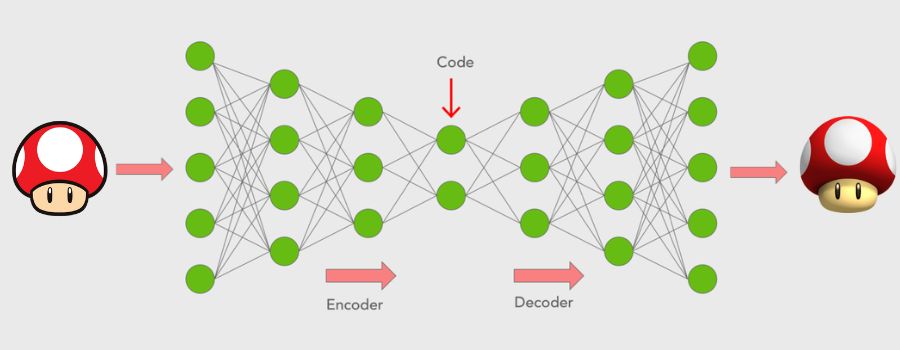
Recently, Huawei, Alibaba, and other Chinese tech giants requested permission from the Cyberspace Administration of China (CAC), to develop deepfake materials. The CAC has reportedly received around 110 applications for such products. So, here, we will closely examine why companies are seeking approvals, CAC’s regulations, and the opportunities in the development of deepfake technology in China.
Chinese Tech Giants and Deepfake
What actually is Deepfake?
The deepfake is a simulated media created using artificial intelligence (AI) and deep learning techniques. It involves generating highly realistic fake content, such as videos, audio recordings, or images, where the likeness or voice of one person is convincingly replaced with that of another. Deepfake technology has advanced to a point where it can make it appear as though someone is saying or doing something they never did.
Algorithms like Generative Adversarial Networks (GANs), Autoencoders, Convolutional Neural Networks (CNNs), Recurrent Neural Networks (RNNs), and Transformer Models are used to create deepfakes. Autoencoders, in particular, hold an essential role in this context. They enable feature learning, data representation, and preprocessing across a wide range of tasks and applications. It has two components involved; an encoder and a decoder. The encoder compresses the input data, capturing its important features in a compact form. Likewise, the decoder takes the compact representation from the encoder and attempts to recreate the original data from it.
Autoencoders, in particular, hold an essential role in this context. They enable feature learning, data representation, and preprocessing across a wide range of tasks and applications. It has two components involved; an encoder and a decoder. The encoder compresses the input data, capturing its important features in a compact form. Likewise, the decoder takes the compact representation from the encoder and attempts to recreate the original data from it.
So using 2 autoencoders, one trained on the reference image, and the other on the target image, you can generate a deepfake. The encoded representation of the target is fed into the decoder of the reference, resulting in an output with the target’s likeness but with the characteristics of the target image.
- You might want to read these:
- Facebook is now banning certain kinds of deepfakes and other manipulated contents
- OpenAI’s ChatGPT is coming to Android next week, pre-registration goes live
-
Understanding the difference between Artificial Intelligence, Machine Learning and deep learning
CAC’s rules governing Deepfake technology
In December 2022, the Cyberspace Administration of China (CAC) established regulations regarding the use of deepfake technology. Along with Huawei and Alibaba, many other Chinese tech giants like Tencent, Baidu, and ByteDance, have also submitted applications to the CAC to develop deep fake technology, for various purposes.
The rules say that companies using deep fake technology must label their content as “deep fake.””If they fail to do so or create deep fake content without permission from CAC, authorities may investigate them, potentially resulting in fines, hefty penalties, or even a ban.”. So, to avoid such problems, these companies are asking for permission beforehand.
Chinese Tech Giants and Deepfake: The Future
These Chinese tech giants will have the chance to continue advancing and working on their deepfake-related innovations. Once they have the necessary approvals in place, they can use deep fake technology for various purposes, including but not limited to research and development, art, advertising, education, and entertainment.
- Meanwhile, check out our review of Infinix GT 10 Pro.







![Best Gaming Laptops in Nepal Under Rs. 250,000 (रु 2.5 Lakhs) [2025] Best Gaming Laptops Under 2.5 lakhs in Nepal [Feb 2025 Update]](https://cdn.gadgetbytenepal.com/wp-content/uploads/2025/02/Best-Gaming-Laptops-Under-2.5-lakhs-in-Nepal-Feb-2025-Update.jpg)
![Best Gaming Laptops in Nepal Under Rs. 120,000 (रु 1.2 Lakhs) [2025] Best Budget Gaming Laptops Under Rs 120000 in Nepal 2025 Update](https://cdn.gadgetbytenepal.com/wp-content/uploads/2025/05/Best-Budget-Gaming-Laptops-Under-Rs-120000-in-Nepal-2024-Update.jpg)
![Best Laptops Under Rs. 80,000 in Nepal [2025] Best Laptops Under 80,000 in Nepal March 2025 Update](https://cdn.gadgetbytenepal.com/wp-content/uploads/2025/03/Best-Laptops-Under-80000-in-Nepal-March-2025-Update.jpg)
![Best Gaming Laptops in Nepal Under Rs. 200,000 (रु 2 Lakhs) [2025] Best gaming lapotp under 2 lakhs Nepal Feb 2025](https://cdn.gadgetbytenepal.com/wp-content/uploads/2025/01/Best-Gaming-Laptops-Under-2-Lakh-Nepal-Feb-2025-Update.jpg)

![Best Mobile Phones Under Rs. 15,000 in Nepal [Updated 2025] Best Phones Under 15000 in Nepal 2024 Budget Smartphones Cheap Affordable](https://cdn.gadgetbytenepal.com/wp-content/uploads/2024/03/Best-Phones-Under-15000-in-Nepal-2024.jpg)
![Best Mobile Phones Under Rs. 20,000 in Nepal [Updated] Best Mobile Phones Under NPR 20000 in Nepal 2023 Updated Samsung Xiaomi Redmi POCO Realme Narzo Benco](https://cdn.gadgetbytenepal.com/wp-content/uploads/2024/01/Best-Phones-Under-20000-in-Nepal-2024.jpg)
![Best Mobile Phones Under Rs. 30,000 in Nepal [Updated 2025] Best Phones Under 30000 in Nepal](https://cdn.gadgetbytenepal.com/wp-content/uploads/2025/01/Best-Phones-Under-30000-in-Nepal.jpg)
![Best Mobile Phones Under Rs. 40,000 in Nepal [Updated 2025] Best Phones Under 40000 in Nepal 2024 Smartphones Mobile Midrange](https://cdn.gadgetbytenepal.com/wp-content/uploads/2024/02/Best-Phones-Under-40000-in-Nepal-2024.jpg)
![Best Mobile Phones Under Rs. 50,000 in Nepal [Updated 2025] Best Phones Under 50000 in Nepal](https://cdn.gadgetbytenepal.com/wp-content/uploads/2025/01/Best-Phones-Under-50000-in-Nepal.jpg)
![Best Flagship Smartphones To Buy In Nepal [Updated] Best flagship phone 2025](https://cdn.gadgetbytenepal.com/wp-content/uploads/2024/07/Best-Flagship-Phones-who-is-it-ft-1.jpg)